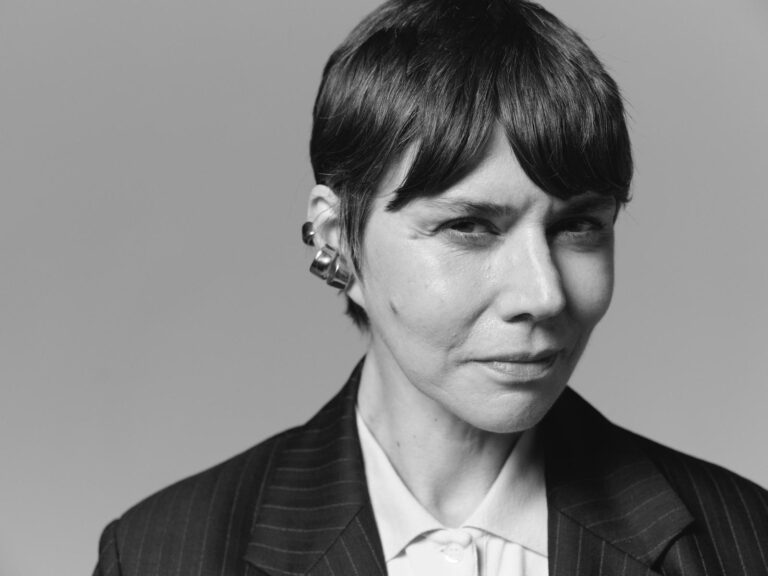A Polish team of filmmakers have created Woman Of… (Kobieta z), Poland’s first feature film about a transgender woman, inspired by true stories. Premiering in the Main Competition of the Venice Film Festival, the poignant film offers a message of hope amid hardship and is now showing at Bíó Paradís in Reykjavík.
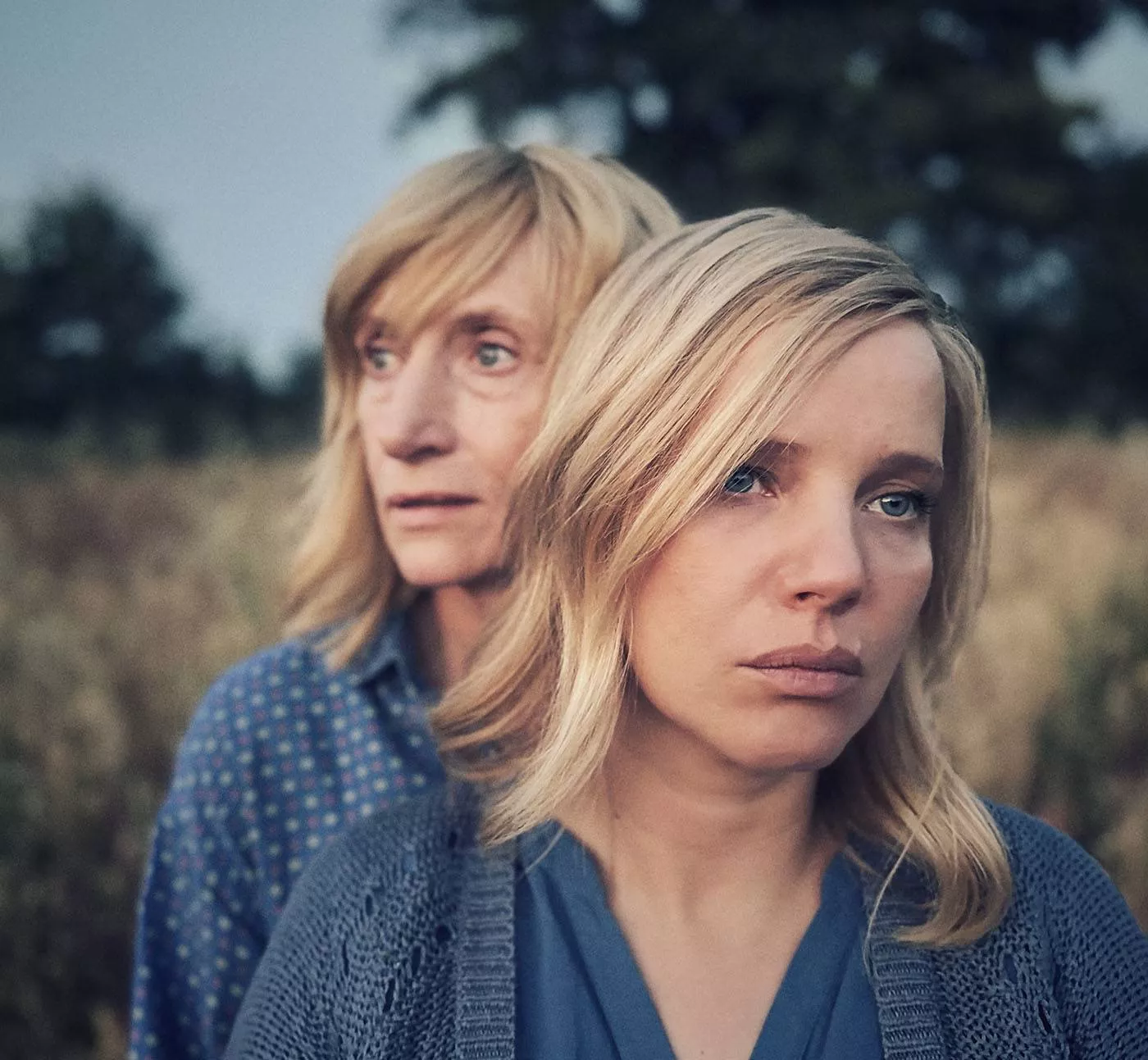
Woman Of… by Małgorzata Szumowska and Michał Englert has achieved significant international success. It premiered at the 80th Venice International Film Festival in September 2023, earning a nomination for the prestigious Golden Lion. The film has received acclaim from international media and was screened at festivals such as BFI Flare in London and the Busan International Film Festival. In March 2024, Małgorzata Szumowska and Michał Englert received the prestigious FIPRESCI Platinum Award at the Sofia International Film Festival, where they personally introduced Woman Of… . The film has since been distributed across Europe, reaching audiences in Italy, France, Germany, Spain, Sweden, and the Czech Republic, before its Polish premiere in April 2024.
Meanwhile, in Iceland the film Odd Fish (Ljósvíkingar) broke new ground this year with Arna Magnea Danks becoming the first transgender actress to play a transgender woman in Icelandic cinema. While both films mark significant milestones in representation, they highlight contrasting realities: Iceland’s progressive embrace of diversity versus the profound marginalization faced by transgender individuals in Poland.
Transgender individuals in Poland face significant challenges, including the absence of a legal framework for gender recognition and pervasive societal prejudice. Małgorzata Szumowska, a prominent voice in European cinema renowned for her bold explorations of complex themes, tackles these issues head-on in her latest work, Woman Of… . In an interview with GayIceland’s Magdalena Łukasiak, Małgorzata reflects on the film and the persistent challenges faced by transgender people in her homeland.
Magdalena Łukasiak: “Have you heard of the film Odd Fish? It’s an Icelandic film about a transgender woman.”
Małgorzata Szumowska: “I’ve heard of it, but I haven’t seen it yet.”
Magdalena: “It’s the first Icelandic film where a trans actress, Arna Magnea Danks, plays a transgender woman, Birna. After the premiere at Bíó Paradís, I was invited to discuss the film with Arna and compare it to Kobieta z. I also spoke with Anna Grodzka, Poland’s first openly transgender politician and activist—a historical figure in the fight for trans rights. I asked her: “Anna, after decades of fighting, what has changed legislatively for trans people in Poland?” She answered, “Absolutely nothing”.”
Małgorzata: “This film has achieved international recognition, with screenings in cinemas across Europe, including Sweden, Spain, France, and the Czech Republic. In Poland, however, it remained more low-key, which I found intriguing.”
Magdalena: “My impression was similar- that the film sparked more conversation abroad than in Poland. How was it received at home?”
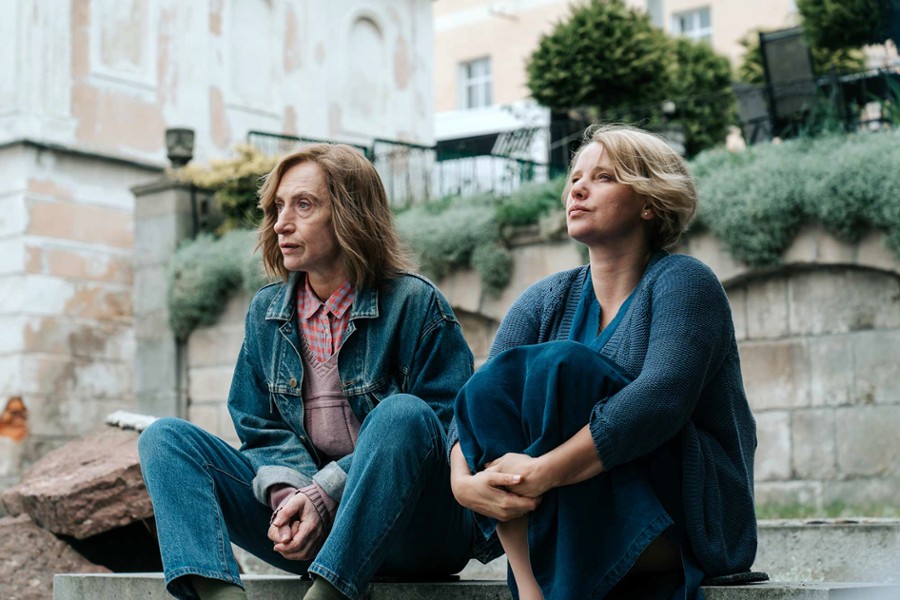
Małgorzata: “There wasn’t outright backlash or hate, but I sensed resistance, surprisingly from liberal journalists and older-generation left-wing politicians. It felt like they dismissed the film as calculated or pandering. What struck me most was the unique journey of this film. Despite its brief run in cinemas and subtle promotion, its thought-provoking subject matter leaves a lasting impression.”
Magdalena: “The film premiered after the Polish parliamentary elections, which seemed like a more favorable political climate.”
Małgorzata: “We had hoped to release it before the elections, but Agnieszka Holland’s The Green Border shifted the focus to the Belarus border crisis. It feels like there’s always a “more urgent” issue than trans rights, a topic still viewed as niche and peripheral. Even so, Kobieta z premiered at Venice and received stellar reviews.
Drawing from real-life stories, we show how much has changed – and how much hasn’t. Many viewers told us the film was eye-opening, especially for those unfamiliar with trans issues.
In places like the U.K. and U.S., however, the film faced criticism for not casting a transgender actress. It’s a double-edged sword: On the one hand, we aim to fight for trans visibility, but on the other, failing to meet representation expectations creates barriers. This highlights how challenging it is to address such issues even with the best intentions.”
Magdalena: “I’ll be honest. As a queer person, I was excited about the film but felt disappointed after watching it. I wondered if it was guilty of pink washing, especially since the trans woman was played by a cisgender actress. I spoke to Anna Grodzka, who consulted on the film, and asked if finding a trans actress was truly impossible. She said they searched but that many were afraid to take on the role.”
Małgorzata: “That’s true. It simply wasn’t feasible. Interestingly, I recently met an incredible young trans woman for a documentary I’m working on. Had I known her earlier, she would have been phenomenal in the role, and we could have built the entire film around her. But at the time, the trans people working with us – Anna Grodzka, Anu Czerwiński, Edyta Baker, Angela Gessler – feared the character might come across as a caricature. We needed a professional actor, and there’s no training for trans actors in Poland—yet. I hope that will change.
We faced a tough decision: make the film with a cis actress or not make it at all. We chose the former because the subject matter is so vital yet marginalized. Despite the criticism, many trans individuals and their families appreciated the film. They told us they felt seen and thanked us for shedding light on their experiences.”
Magdalena: “Where did the idea for this film come from?”
Małgorzata: “The idea emerged a long time ago. Michał Englert, the film’s co-director and cinematographer, witnessed a gender-affirming surgery 20 years ago, which left a profound impression on him. He spoke with the person undergoing the procedure, and we started discussing the topic back then. Over time, the idea faded but resurfaced when more queer and trans people entered our circle. We felt it was the right moment to revisit the subject and tell a piece of Polish history we know and are part of.”
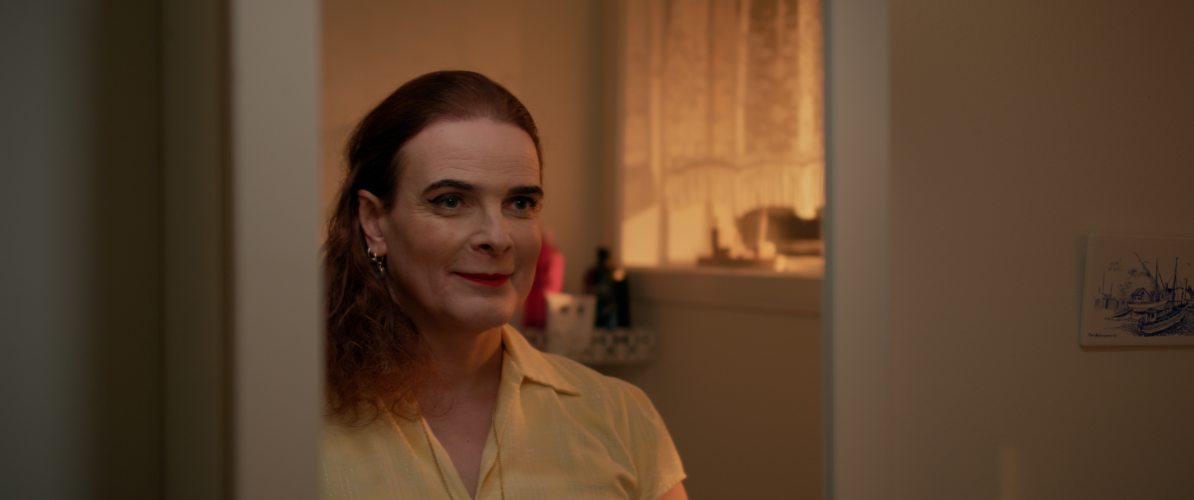
Magdalena: “Linking this to Poland’s political transformation and the Solidarity movement in the 1980s is a brilliant idea.”
Małgorzata: “The transition of a country mirrors the transition of a person.”
Magdalena: “The film’s title evokes Andrzej Wajda’s Man of Marble and Man of Iron.”
Małgorzata: “I knew Wajda personally and held him in high regard. His films tackled significant social issues and captured the spirit of the times. We felt the current climate – both the political campaigns and societal transformations – was equally relevant. Hence, the title: where there was once Man of Marble, there is now a film about a trans woman. A topic unimaginable 10 or 15 years ago.”
Magdalena: “What message do you hope the film conveys to audiences?”
Małgorzata: “The film portrays the journey of someone from a time as distant as pre-1989 Poland, an era with no understanding of queerness or trans identity. We wanted to focus on a middle aged trans person, which is rarely depicted. Most trans narratives today, especially in Western media, focus on younger individuals. For instance, Emilia Perez is a great film, but it follows that trend. We aimed to respectfully explore the long and challenging path many have taken.
Drawing from real-life stories, we show how much has changed – and how much hasn’t. Many viewers told us the film was eye-opening, especially for those unfamiliar with trans issues. The in-depth research and care we put into the project made it somewhat educational. I even considered working with the Ministry of Education to show the film in schools. That’s still an aspiration.”
Trans people themselves often note how their struggles are seen as niche in Poland, which is deeply disheartening.
Magdalena: “Although Poland’s far-right Law and Justice party lost the recent elections, the winning party is still conservative. Civil unions, which were a campaign topic for the queer electorate, remain off the table. Do you think anything will change in Poland, and can your film contribute to that change?”
Małgorzata: “At the premiere, Justice Minister Adam Bodnar pledged to take action. But abortion is still illegal in Poland, and the situation for trans people remains dire. I believe generational change among politicians is essential to shift the national mindset. Right now, it’s extremely difficult. There’s a “concrete wall” blocking any progress.
I have hope in the younger generation, like my 12-year-old daughter and 20-year-old son. They’ve grown up with the internet and are exposed to a broader world. But I fear it will take another 20 years for meaningful change. Watching Sex Education with my daughter, I’m reminded of how far behind we are. For her generation, many things are self-evident, but we still live in a society that marginalizes trans people.”
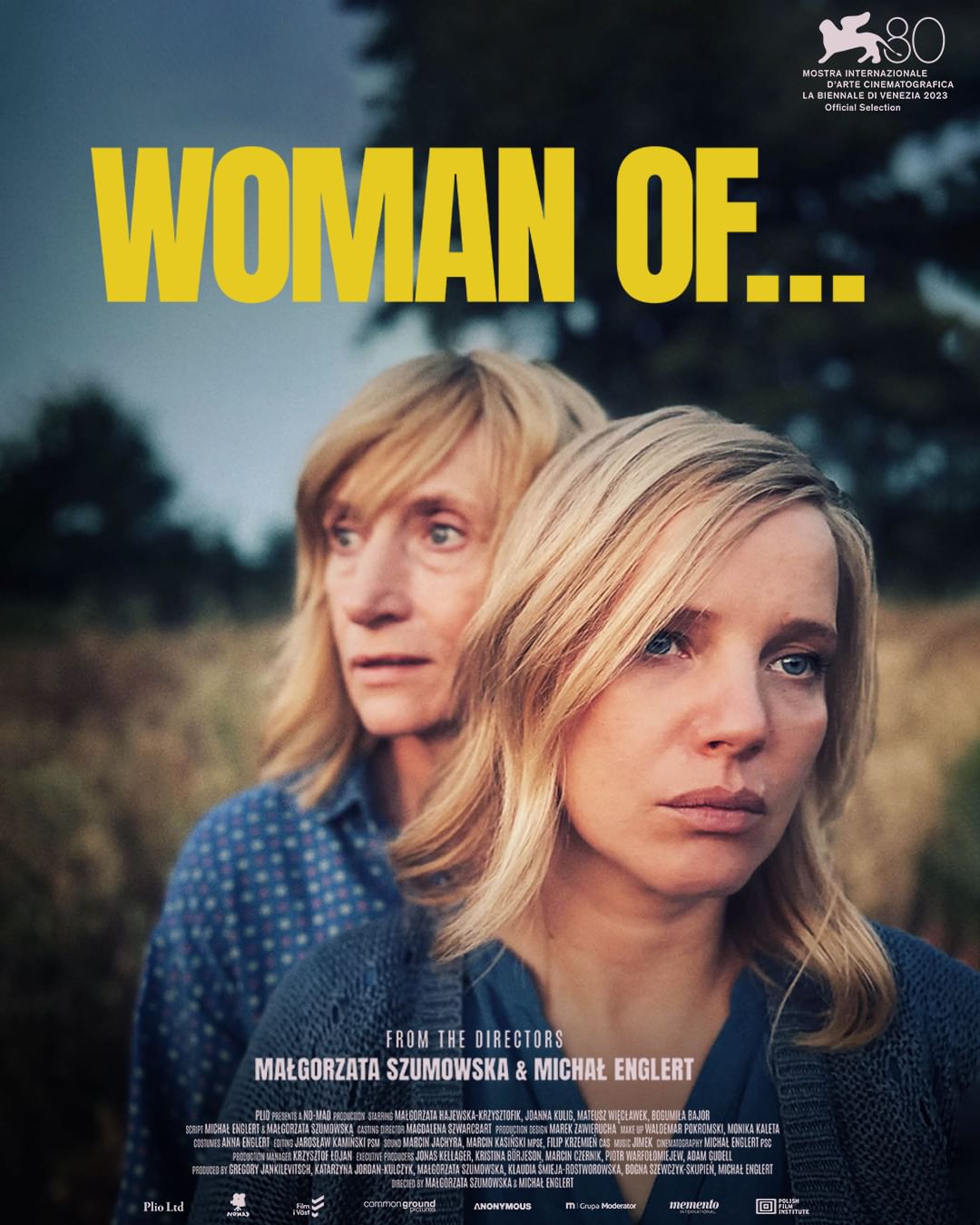
Magdalena: “Do you think Polish filmmakers avoided addressing trans issues out of fear? Is that why your film is the first?”
Małgorzata: “Honestly, I think it’s less about fear and more about a lack of interest. Perhaps some were apprehensive, but for most, it’s a marginal topic that doesn’t affect them. Trans people themselves often note how their struggles are seen as niche in Poland, which is deeply disheartening.”
Magdalena: “Why did you, as someone living in a heteronormative relationship, choose to make this film? Trans issues often don’t concern people in your position.”
Małgorzata: “I wouldn’t necessarily define myself as heteronormative.”
Magdalena: “But you live in a heterosexual relationship, and trans issues typically don’t intersect with such lives. I feel like most people in Poland, including politicians, don’t engage with this topic because it doesn’t affect them.”
Małgorzata: “I come from a family of journalists. My father was a well-known reporter in the 1970s and taught me to focus on those who struggle the most. It’s simple: I’m drawn to people who face immense challenges, and trans people in Poland face some of the hardest.
This film was particularly important to me because it highlights the struggles of trans individuals over 50, who lack systemic support. I hope generational change will eventually lead to a shift in attitudes.”
No one actively tried to stop us, but the apathy toward trans issues was evident.
Magdalena: “Is it true you struggled to secure funding for the film?”
Małgorzata: “There were challenges, yes, but as an award-winning director, I was able to pull the budget together. We also had a private investor. The bigger issue wasn’t funding, it was the lack of interest in this topic in Poland. No one actively tried to stop us, but the apathy toward trans issues was evident.”
Magdalena: “That’s exactly my point. People aren’t interested because transgender individuals make up only 0.3% to 0.6% of the global population. It’s simply not their concern, it doesn’t affect the majority.”
Małgorzata: “Exactly. People just don’t give a shit about trans people. That’s the blunt truth.”
Magdalena: “Within the queer community, trans people are the group most in need of support right now. I even struggled when I was invited to join a panel discussion after the screening of your film at Bíó Paradís. The organizers wanted to connect Aniela’s story from your film with Birna’s story in Odd Fish. But those are two completely different realities.”
The Icelandic film is warm. It shows someone who, after transitioning, returns to their home village, rebuilds relationships, and finds support among loved ones. It leaves viewers with a sense that everything can work out. Your film, on the other hand, is like a slap in the face. After the premiere, an Icelander asked me why your film was so depressing. I said, “Because it’s a film about Poland. Welcome to Polish reality”.
At the premiere in Reykjavik, the theater was packed. I asked if anyone in the audience was Polish. No one responded. I don’t know if they didn’t want to admit it, were afraid, or if there simply weren’t any Poles there because the topic doesn’t interest them.”
Małgorzata: “That’s a classic scenario. But I’ve grown used to my films being more appreciated abroad than in Poland. My career as a filmmaker has always been more closely tied to the international market.
What’s important to me is creating films that resonate with audiences from different countries. That’s why I’m glad this story reached the global stage. In Sweden, the film was featured in major newspapers and shown in cinemas. Something that rarely happens with Polish films. It’s incredible.”
Both Kobieta z and Odd Fish (Ljósvíkingar) remind us of cinema’s ability to amplify marginalized voices and bridge cultural divides. While they depict vastly different realities, their shared goal of fostering understanding and empathy resonates universally. By confronting difficult topics with honesty and compassion, these films challenge audiences to reflect on societal norms and envision a more inclusive future. For Kobieta z, its journey may have started in Poland, but its message transcends borders, finding a home wherever stories of resilience and identity are needed most.”

